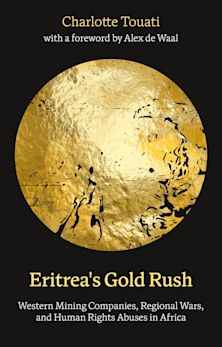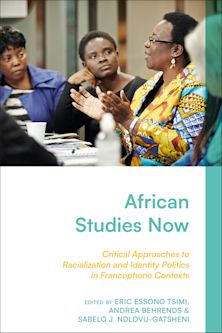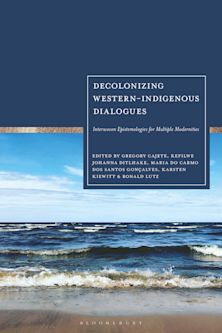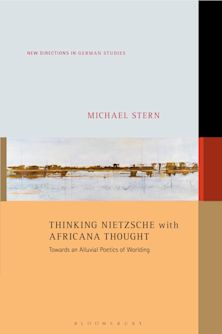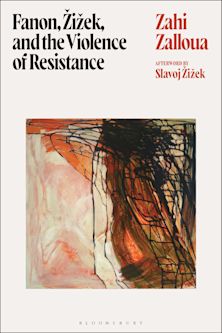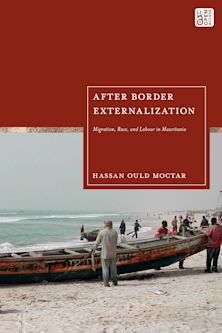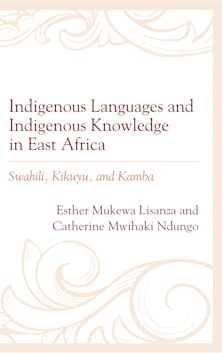- Home
- ACADEMIC
- African & Africana Studies
- Decolonial and Postcolonial Studies
- Memory and the Postcolony
Memory and the Postcolony
African Anthropology and the Critique of Power
Memory and the Postcolony
African Anthropology and the Critique of Power
This product is usually dispatched within 2-4 weeks
- Delivery and returns info
-
Flat rate of $10.00 for shipping anywhere in Australia
You must sign in to add this item to your wishlist. Please sign in or create an account
Description
The critique of power in contemporary Africa calls for a new approach to the making of political subjectivities. Through theoretically informed anthropology, this book meets the urgent need to rethink our understanding of the moral and political force of memory, its official and unofficial forms, its moves between the personal and the social in postcolonial transformations. Memory and the Postcolony brings these transformations into perspective. It is divided into three sections in which distinguished anthropologists explore death and subjectivity; the memory work of elections and public commissions; and fundamentalism and the future. Presenting a sustained comparative analysis of memory as a politicized reality, the book will be essential reading for all scholars of postcolonial societies, as well as all those with an interest in contemporary Africa.
Table of Contents
2. Beyond the Grave: Death, Body and Memory in Postcolonial Zaire/Congo - Filip De Boeck
3. Death, Memory and the Politics of Legitimation: Nuer Experiences of the Continuing Sudanese Civil War - Sharon Hutchinson
4. Smoke from the Barrel of a Gun: Memory, Postwars of the Dead, and Reinscription in Zimbabwe - Richard Werbner
5. The Uses of Defeat: Memory and Political Morality in East Madagascar - Jennifer Cole
6. Systematic Judicial and Extra-Judicial Injustice: Preparations for Future Accountability - Sally Moore
7. Fundamentalism, Cultural Memory and the State: Contested Representations of Time in Postcolonial Malawi - Rikj van Dijk
8. 'Make a Complete Break with the Past': Memory and Postcolonial Modernity in Ghanian Pentecostalist Discourse - Birgit Meyer
9. Memory and Becoming Chosen Other: Fundamentalism and Elite-Making in a Zambian Catholic Mission School - Anthony Simpson
10. Afterword - Liisa Malkki
Product details
| Published | 01 Sep 1998 |
|---|---|
| Format | Paperback |
| Edition | 1st |
| Extent | 256 |
| ISBN | 9781856495929 |
| Imprint | Zed Books |
| Dimensions | Not specified |
| Series | Postcolonial Encounters |
| Publisher | Bloomsbury Publishing |
About the contributors
Reviews
-
The essays in this volume are must reading for all who contemplate life in the African postcolony
African Studies Review
-
The preface 'post' in 'postcolony' alludes to a potent predicate that can never be erased. From the ashes and ruins of colonial memory arise the violence of Zaire and Sudan, the memorials of Zimbabwe, Madagascar and Malawi and the utopian dreams of Ghanaian and Zambian Pentecostals. Two questions arise: how much suffering died with the so-called end of the colonial era in Africa, and what is being remembered and regenerated? Drawing together a leading group of Africanists and anthropologists, Richard Werbner has assembled an excellent collection of original research and critical theoretical work about the role of the signs and symbols of Africa's colonial legacy in shaping attitudes toward power and the contemporary public spaces. The result is a stunning and first-rate anthology that uncovers the historical and ethnographic roots of the postcolonial condition.
Bennetta Jules-Rosette, Professor of Sociology and Director of the African and African-American Studies Research Project, University of California, San Diego
-
Those who have come to fear that 'post-colonialism' is but another fashionable discourse destined to self-destruct in a cloud of specious theory and jargon will find proof to the contrary in this book. In the African 'crisis of memory' the contributors, distinguished senior and some of the most imaginative young scholars in the field, found a common theme and a complex of practises that holds these essays together. Above all, they demonstrate that anthropology's work did not end with the demise of colonialism and that it continues to produce findings and criticl insights worth to be pondered by historians, political scientists, students of law and religion, and many others.
Johannes Fabian, Professor of Cultural Anthropology, University of Amsterdam













